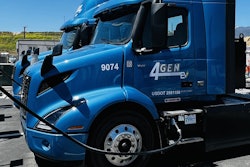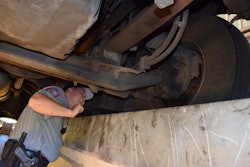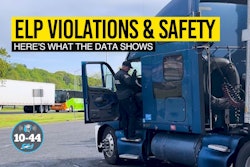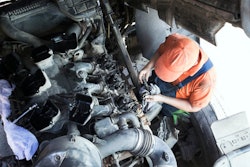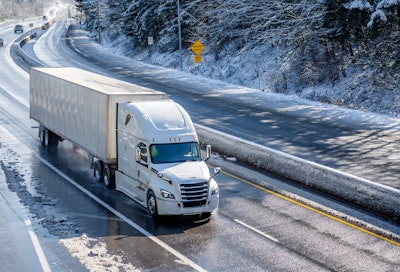
The Committee on Environment and Public Works is reviewing a bill that would require the Environmental Protection Agency (EPA) to authorize manufacturers to suspend engine derates and shutdown functions on diesel vehicles during periods of cold weather.
EPA Administrator Lee Zeldin in August urged engine and equipment manufacturers to revise system software to prevent sudden loss of power from engine derates related to aftertreatment problems. The Cold Weather Diesel Reliability Act of 2025, co-sponsored by Republican Senators Dan Sullivan (Alaska) and Cynthia Lummis (Wyoming), however, hones in Arctic temps at which diesel exhaust fluid (DEF) is known to freeze.
The Senators contend that automatic engine shutdowns and power reductions due to emissions control malfunctions in extreme cold pose "serious, life-threatening risk," and that DEF systems are "frequently unreliable and logistically impractical" in prolonged freezing conditions.
The bill does not waive compliance with any emissions standards under the Clean Air Act yet contends that "emissions safeguards under the Clean Air Act were never intended to jeopardize human safety or impede critical mobility," the bill reads.
The bill, which would apply to on- and off-highway diesel vehicles and equipment, outlines two primary mandates for the EPA, each to be enacted within 180 days of the bill's passage.
Temporary cold weather mitigation
The EPA would be required to revise regulations to allow manufacturers to suspend engine derate or shutdown functions. This temporary mode would be allowed when an emissions control fault is triggered at or below freezing (0°C/32°F).
This function would only be authorized if "continued maximum engine performance... is necessary to prevent occupational danger, equipment failure, or loss of essential transportation functionality in remote areas."
The engine must return to normal emission control operation once temperatures rise above freezing.
Regional exemption
The bill also grants a year-round exemption from DEF system requirements for specific vehicles – "primarily operated north of 59 degrees north latitude" or those that encounter operational conditions where prolonged low temperatures make using the DEF system "impractical." The area north of 59 degrees north latitude is primarily Alaska.
The bill exempts the vehicle from any derate or shutdown functions related to the "absence, degradation, malfunction, or fault" of the DEF system.


